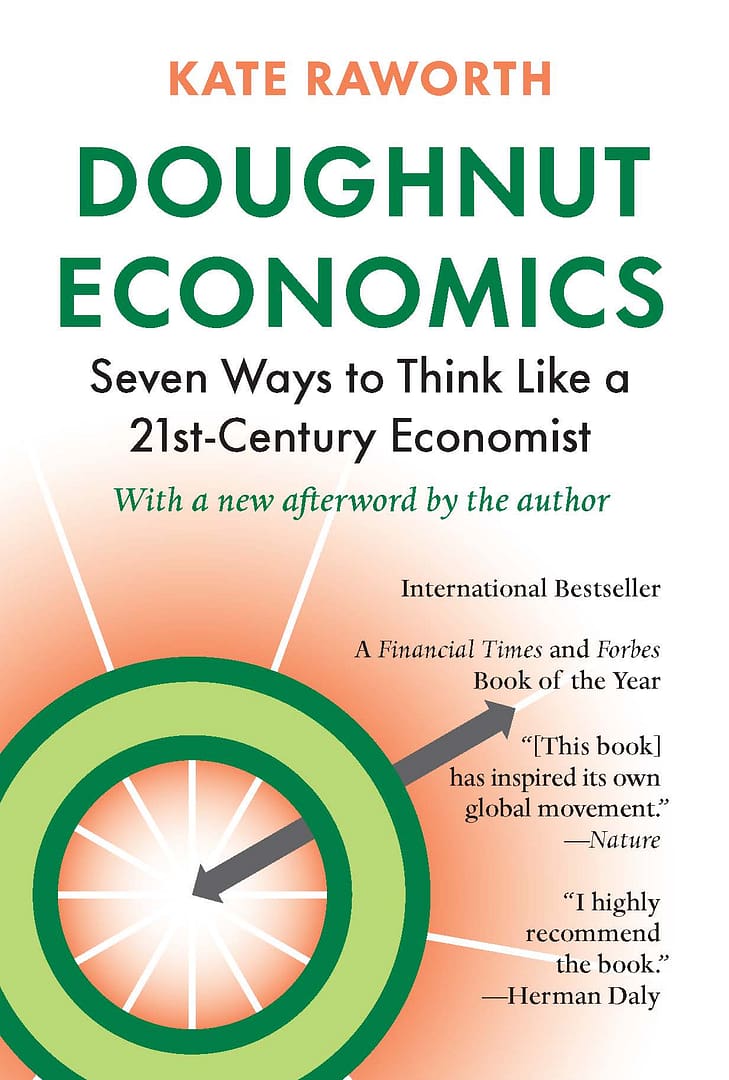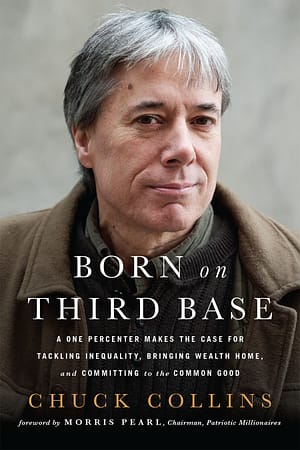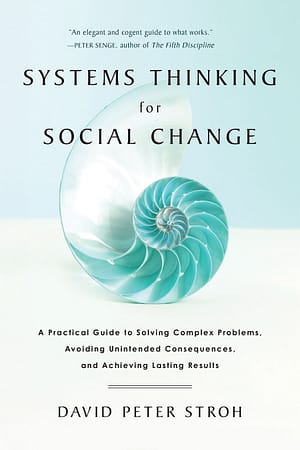| Pages: | 320 pages |
| Book Art: | Black-and-white photographs and illustrations throughout |
| Size: | 6 x 9 inch |
| Publisher: | Chelsea Green Publishing |
| Pub. Date: | March 29, 2018 |
| ISBN: | 9781603587969 |
Doughnut Economics
Seven Ways to Think Like a 21st-Century Economist
*The Sunday Times Bestseller
*A Financial Times Book of the Year
*A Forbes Book of the Year
*Winner of the Transmission Prize 2018
*Longlisted for the FT/McKinsey Business Book of the Year Award 2017
*Porchlight “Best Business Book of 2017: Current Events & Public Affairs”
The book that redefines economics for a world in crisis.
Economics is the mother tongue of public policy. It dominates our decision-making for the future, guides multi-billion-dollar investments, and shapes our responses to climate change, inequality, and other environmental and social challenges that define our times.
Pity then, or more like disaster, that its fundamental ideas are centuries out of date yet are still taught in college courses worldwide and still used to address critical issues in government and business alike.
That’s why it is time, says renegade economist Kate Raworth, to revise our economic thinking for the 21st century. In Doughnut Economics, she sets out seven key ways to fundamentally reframe our understanding of what economics is and does. Along the way, she points out how we can break our addiction to growth; redesign money, finance, and business to be in service to people; and create economies that are regenerative and distributive by design.
Named after the now-iconic “doughnut” image that Raworth first drew to depict a sweet spot of human prosperity (an image that appealed to the Occupy Movement, the United Nations, eco-activists, and business leaders alike), Doughnut Economics offers a radically new compass for guiding global development, government policy, and corporate strategy, and sets new standards for what economic success looks like.
Raworth handpicks the best emergent ideas—from ecological, behavioral, feminist, and institutional economics to complexity thinking and Earth-systems science—to address this question: How can we turn economies that need to grow, whether or not they make us thrive, into economies that make us thrive, whether or not they grow?
Simple, playful, and eloquent, Doughnut Economics offers game-changing analysis and inspiration for a new generation of economic thinkers.
“This is sharp, significant scholarship . . . Thrilling.”—Times Higher Education
“Raworth’s magnum opus . . . Fascinating.”—Forbes
“Doughnut Economics shows how to ensure dignity and prosperity for all people.”—Huffington Post
Reviews and Praise
“Written in a clear and engaging style, Kate Raworth explains to the general public and students what is wrong with the standard curriculum in economics, and how to break out of that monopolized mental prison. . . . [Doughnut Economics is] a cause for celebration. . . . I highly recommend the book.”—Herman Daly, Ecological Economics
More Reviews and Praise
“Raworth’s magnum opus. . . . A fascinating reminder to business leaders and economists alike to stand back at a distance to examine our modern economics.”—Forbes, “Best Business Books of 2017”
“An admirable attempt to broaden the horizons of economic thinking.”—Financial Times, Martin Wolf, “Best Books of 2017: Economics”
“A radical new economic theory to help save the environment.”—Time
“‘Sustainability in all things’ should be our species’ philosophy; the Doughnut Model our compass for the journey.”—Sir David Attenborough
“[It offers] the fresh thinking about the economy needed in light of the pandemic."—Pope Francis
“A thought-provoking book.”—John Cassidy, The New Yorker
“Can anyone seriously suppose that today’s economic orthodoxies are going to bring the world back from the brink of chaos? We need to fundamentally rethink the way we create and distribute wealth, and Kate Raworth’s Doughnut Economics provides an inspiring primer as to how we must now set about that challenge. I hope it ushers in a period of intense debate about the kind of economy we now so urgently need.”—Jonathon Porritt, author of The World We Made; founding director, Forum for the Future
“An excellent book.”—Harvard Business Review
“I read this book with the excitement that the people of his day must have read John Maynard Keynes’s General Theory. It is brilliant, thrilling, and revolutionary. Drawing on a deep well of learning, wisdom, and deep thinking, Kate Raworth has comprehensively reframed and redrawn economics. It is entirely accessible, even for people with no knowledge of the subject. I believe that Doughnut Economics will change the world.”—George Monbiot, author; columnist at The Guardian
“Doughnut Economics [takes] aim at traditional economic growth models.”—New York Times
“What if it were possible to live well without trashing the planet? Doughnut Economics succinctly captures this tantalising possibility and takes up its challenge. Brimming with creativity, Raworth reclaims economics from the dust of academia and puts it to the service of a better world.”—Tim Jackson, author of Prosperity without Growth
“Doughnut Economics has made waves around the world.”—PBS News Hour
“Not long ago, well-known development economist Kate Raworth’s Doughnut graphic became an overnight sensation. Now this marvelous book clearly and succinctly explains her re-envisioning of the economy. On a bookshelf crowded with attempts to reframe economic thinking and the way forward, this book stands out—brilliantly.”—Juliet Schor, author of Plentitude
“This is sharp, significant scholarship. . . . Thrilling.”—Times Higher Education
“Economics rightly is under the microscope. Kate Raworth’s insightful Doughnut is what every budding economist should see when they first peer down the lens.”—John Fullerton, founder and president, Capital Institute
“[Raworth's] biggest question . . . is one that terrifies all mainstream economists: is ‘growth’ endless?”—Andrew Marr, The Spectator
“This is truly the book we’ve all been waiting for. Kate Raworth provides the antidote to neoliberal economics with her radical and ambitious vision of an economy in service to life. Given the current state of the world, we need Doughnut Economics now more than ever.”—L. Hunter Lovins, president and founder, Natural Capitalism Solutions
“A compelling and timely intervention.”—Caroline Lucas MP, Books of the Year, The Ecologist
“Doughnut Economics shows how to ensure dignity and prosperity for all people.”―Huffington Post
“An innovative vision about how we could refocus away from growth to thriving.”—Daily Mail
“A brand new way of conceptualising economic development without being tied to infinite growth . . . A useful idea.”―The Guardian
“A radical and solidly-argued book . . . Plausible and informative.”―El Pais
“Doughnut Economics makes a complex thesis accessible.”—George Alagiah, BBC News
“Doughnut Economics has inspired its own global movement.”—Nature
“Required summer reading for Labour politicians and activists.”―openDemocracy
“[A] sharp, insightful call for a shift in thinking . . . Raworth’s energetic, layperson-friendly writing makes her concept accessible as well as intriguing.”—Publishers Weekly
“[Reveals] the huge hold in the standard economic model . . . offers a mountaintop view of the world.”―Knowledge@Wharton: The Journal of Wharton Business School
“Doughnut Economics is excellent at describing economic concepts in accessible terms. . . . Raworth’s in-depth summary of climate change is very well argued.”—London School of Economics Book Review
“I see a lot of books presuming to explain what’s wrong with the economy and what to do about it. Rarely do I come across one with the consistent new paradigm frame, historical depth, practical sensibility, systemic analysis, and readability of Doughnut Economics. . . .[It] provides both the nail in the coffin of standard economics and the real-world-based intellectual structure from which an authentic real-world economics for the 21st century can grow.”—David Korten, YES! Magazine
“Doughnut Economics is both simple and compelling: Design an economy that operates within the two rings of a donut—the social foundation of everyone having access to life’s essentials, and the ecological ceiling of planetary boundaries.”—Politico.com
“Kate Raworth, formerly of Oxfam, shows that the undulations of equality and justice are really very profound. . . . [Her] aim is to adjust human use of the processes of planetary dynamics so that the overall outcome of development is survival in peace, health, prosperity and companionship.”―British Academy Review
"Proposes a new economic model—one that embeds the human economy within the natural world and within society, rather than being distinct from either."―The Ecologist
"Another look at measuring growth . . . Raworth makes several key suggestions for reform."―MoneyWeek
"Judiciously combining history, theory, anecdotes and diagrams, [Raworth] provides a narrative that is easy to follow. . . . Worthwhile and challenging."—Frontline
“A new book you will need to know about . . . Kate writes beautifully. . . . If only ten percent of the ideas get implemented, the world will be a much better place.”—Duncan Green, Oxfam Blogs







